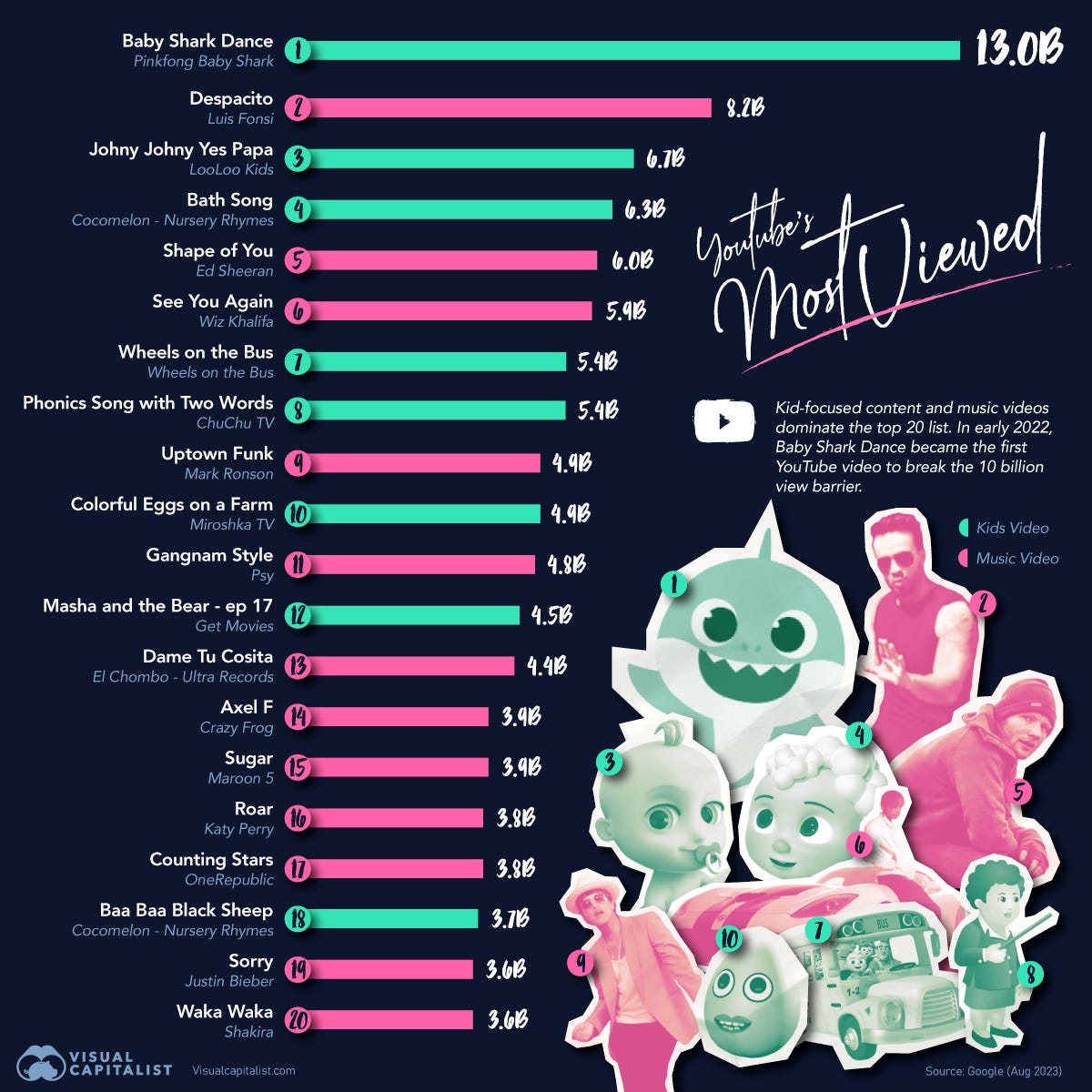👛✨The Nexialist #0135
the truth about airplane mode | cosmophobia | logotherapy | worldbuilding ft. design fiction | foresight resources | screens for kids | low tech zones | hypnic jerk
welcome to another week of cyber-alchemy, the nexialist
hey, you! hopefully this e-mail finds you on a good day. last friday i was ecstatic to see brazilian superstar pabllo vittar performing at one of amsterdam’s best concert houses. i had a blast with juan and my friends. so much fun, pride, camp and happiness. i’ll leave you to this week’s curated content, because it is finger-lickin’ good (except the parts that aren’t). also, before you keep going, remember there is a 30% discount on the yearly subscription until the end of the month, in case you want to show some $upport for this person who writes you. enjoy! 🫀✨
1 year ago » 🗿✨The Nexialist #0083 : Nuragic Civilization | Sa Sartiglia | City: Megasculpture | Brasilia: Urbanism Utopia? | The Dystopia of São Paulo | Bad at Predictions | Global Tech’s Changemakers | BZRP + VILLANO ANTILLANO | Her
2 years ago » 🐕✨The Nexialist #0034 : Doggos | Cat Jams | Bunny is a Rider | Codex Seraphinianus | Glitched Nostalgia | Back to the Future: Identity | Public Service Broadcasting
✈️the truth about airplane mode
this is one of these questions that i always have in mind, finally answered in less than five minutes. the part below, however, got my attention:
Even on the ground, almost all our electronics emit rogue radio waves, slowing down our internet and making our calls choppy. This leads consumers to pay for more bandwidth, pushing service providers to take over more of the radio spectrum, and eventually, send more satellites into the sky— creating a vicious cycle that could eventually blot out the stars. Though, even without these satellites, this system is threatening our relationship with the cosmos. Radio telescopes used for astronomy rely on a specific band of wavelengths to see deep into space. However, while this range is supposedly protected, the cutoffs aren’t enforced.
could “threatening our relationship with the cosmos” be something beyond physical but also figurative on how technology can distract and hijack any connection we have with the cosmos and the world around us?
brainsparks: james webb telescope (tn#39), trust in tech (tn#94)
🌌cosmophobia
this week i listened to an interview with antônio bispo on the ilustríssima conversa podcast that was so rich that i wished everyone could understand portuguese. to my surprise, futuress had done a piece in english in collab with the brazilian publishing platform piseagrama.
Antônio Bispo dos Santos is a writer, poet, farmer, and one of the greatest thinkers in contemporary Brazil—or rather, a “translator of knowledges,” as he likes to put it. Bispo is also a political activist, playing an important role in the fight for land and for the recognition of the culture and way of life of the quilombos—communities originated by enslaved Black people who were able to escape and resist slavery.
this week another quilombola leader was murdered in brazil: bernardete pacifico, a 72-year-old human rights activist. this shows the historical violence against these communities, which represent at least 1.3million of brazilians.
this interview helps us see a quilombola perspective. bispo says the state and political parties, both left and right, are colonial institutions. he brings the term counter-colonialism, which is about calling out and training current institutions to fight against cosmophobia: this monotheist regime in which there is only one way of existence, inherent of colonialism.
At this moment, the Bible’s colonial god—Euro-Christian, monotheistic—deterritorialized his people. When he cursed the land to colonialist people, he said that his people could not even touch the land. When he said that the land would offer them weeds and thorns, he said that the people could eat neither the fruits, nor the leaves, nor anything that this land offered. When he said that these people had to eat by the sweat of their brow, at that very moment he created work as an action of synthesizing nature. At the same time, he also created a disease that I call “cosmophobia”: the fear of the cosmos, the fear of god. The monotheist Euro-Christian subject feels hopeless.
brainsparks: linear opposites or closely related? (tn#126), planetary consciousness (tn#63), time for indigenous futurism (tn#65), decolonizing our temporality (tn#10)
🧠logotherapy
no, it’s not some kind of branding therapy, though it made me think of william gibson’s cyberpunk work ‘pattern recognition’, in which the main character has psychological sensitivity to corporate symbols. this is actually a kind of therapy created by viktor frankl to help patients find meaning (it does have its own set problems, which you can read about, nonetheless, it also helps reframe
Logotherapy was designed to help people deal with the problem of finding meaning, and had a robust theoretical framework to help guide it. Frankl assumed that life had inherent value and was worth living, that we have a will to meaning which must be confronted, that we have the freedom to find meaning at every moment, and that people had not only a mind and body but a “spirit” that was our true, unique, essence that also had to be considered.
here are some more practical (also quite broad) actions:
“We can discover this meaning in life in three different ways:
(1) by creating a work or doing a deed [the way of achievement or accomplishment];
(2) by experiencing something or encountering someone [the way of nature and culture, and the way of love]; and
(3) by the attitude we take toward unavoidable suffering.”He also reminds us that life isn’t fair, and sometimes it’s going to suck. In these cases, attitude can be everything:
brainsparks: bibliotherapy (tn#14), consciente and purpose (tn#49), languishing (tn#16), what will replace religion (tn#81), rituals x routine (tn#76), smartphones and rosaries (tn#87), the new rules of gathering (tn#37)
🌐worldbuilding ft. design fiction
paul graham raven shared in his blog this text about worldbuilding and design fiction. even though i’m familiar with the terms, it is nice to see an expert making some points about it. (he is a critic of sci-fi literature and a consulting writer).
Worldbuilding has a bit of a dirty name in the design fiction world. Julian Bleecker in particular is really not a fan; as I understand it, worldbuilding to Bleecker is what those big corporate agency futures reports do. You know, lots of expository crap about driverless cars or AI or whatever, either written in the future-prophetic or in a sort of blank omniscient-third-person present tense. “In the city of the future, AI will wipe your ass for you, which we at McFlimsy assess to be a potential ass-wiping market of USD3trillion.” To use a dichotomy that the writers in the audience will know well, these reports tell rather than show.
🔭foresight resources
talking about foresight methodologies,
shared this open repository of foresight resources, curated by ben lowdon. i have my own resource page, which always feels unfinished, but at least it’s there and i feed it when i remember.brainsparks: decolonizing foresight (tn#21), foresight in hindsight (tn#1), planning toolbox (tn#21)
👛millennial suffering
a few months ago pew research announced it was canceling its generational labels. finally. i’ve been trying to avoid them at work for years, but clients insist, still today, to have these labels in their briefing.
“Generational research has become a crowded arena,” Parker says. “The field has been flooded with content that’s often sold as research but is more like clickbait or marketing mythology. There’s also been a growing chorus of criticism about generational research and generational labels in particular.”
now another signal on how this makes no sense. “millennials don’t all suffer alike. what really divides them is privilege.” 🫢 gasp, millennials are not made all equal, and inequality is the real divider.
A generational problem has been hiding a class one. Or more precisely, what started as a generation problem has become a class one, as rich boomers have begun to hand on wealth to their children. This is the real source of the divide – the determining factor in whether millennials are wealthy is the wealth of their parents. Thirty-five-year-olds whose parents owned their own home and were highly educated are three times more likely to have bought their own place. And the richer the parent, the more expensive their child’s property tends to be.
brainsparks: an economy of suffering, rituals of suffering (tn#59)
👶🏻screens for kids
talking about generational differences, i can’t think what it is like to have a phone as a child. when this infographic appeared in my e-mail i felt weird. the same week, the study showing screen time before 1 year old is associated with “developmental delays in communication and problem-solving at ages 2 and 4 years.” it’s quite chilling to think the amount of time these kids spend on screens. (i did have screen time, on the TV, but never so much). also, it reminded me how 4 out of 10 of the most subscribed youtube channels are focused on children content. “And this has become a lucrative business too. In 2021, the company behind Cocomelon and other popular kids channels was acquired for around $3 billion.”
brainsparks: content diet (tn#2), personal machines and portable worlds (tn#132), imagination as a necessity (tn#15), when we stop playing (tn#16), self-outsourcing age (tn#17)
♟️low tech zones
people have been sharing this message from grimes for a few weeks, and I think there is something quite important to consider here, in the midst of the ai-scare. i could not verify everything, but here is some parts of her case study when ai was used in a pro-human way:
basically, kasparov (and the entire chess community) were shook when he was beat by ibm’s deep blue. and they reacted in a smart and strategic way when feeling they could be replaced by ai: they created low tech zones. they made the competitions, for instance, exclusive to humans. the chess ai was used for training, innovating in the game and finding news ways to play. so as things get more hi-tech, we are craving for more human touches and perspectives. and we are in a moment where we can decide where ai should and should not be. of course, it’s easier said than done, but still, a more critical view than i have seen in other places.
read: How Deep Blue vs. Kasparov changed AI forever
👁️hypnic jerk
there is a name for that jump we do sometimes right before sleeping, i just needed to share it.
A hypnic jerk, hypnagogic jerk, sleep start, sleep twitch, myoclonic jerk, or night start is a brief and sudden involuntary contraction of the muscles of the body which occurs when a person is beginning to fall asleep, often causing the person to jump and awaken suddenly for a moment. Hypnic jerks are one form of involuntary muscle twitches called myoclonus.
see you next week, cutie🫀
❓If you want to know what a Nexialist is, click here.
🔎If you want to see what I’ve already posted, visit the archive and use the search engine. Even I do that a lot.
💌I want to know what you think/who you are! Your feedback is highly appreciated; you can e-mail me or fill in this short survey. Thank you! 🙏🏻
🔌Let’s Collab?
I truly believe innovation comes from bringing improbable areas together, and that’s why I called this project The Nexialist. Some sectors are known to be self-referencing and hermetic. Sometimes teams are on autopilot mode, focused on the daily grind, which hinders innovation. As a Nexialist, I like to burst these bubbles, bringing references from different areas, and maintaining teams inspired and connected to the Zeitgeist.
I offer inspiration sessions called Brainsparks, creative desk research (Zeitgeist Boost), Plug’n’Play deals for workshops and sprints, and other bespoke formats. If you want to know more about this, send me an e-mail with your challenge(s) and we can figure something out together. Check out my website and some work I’ve done below:








